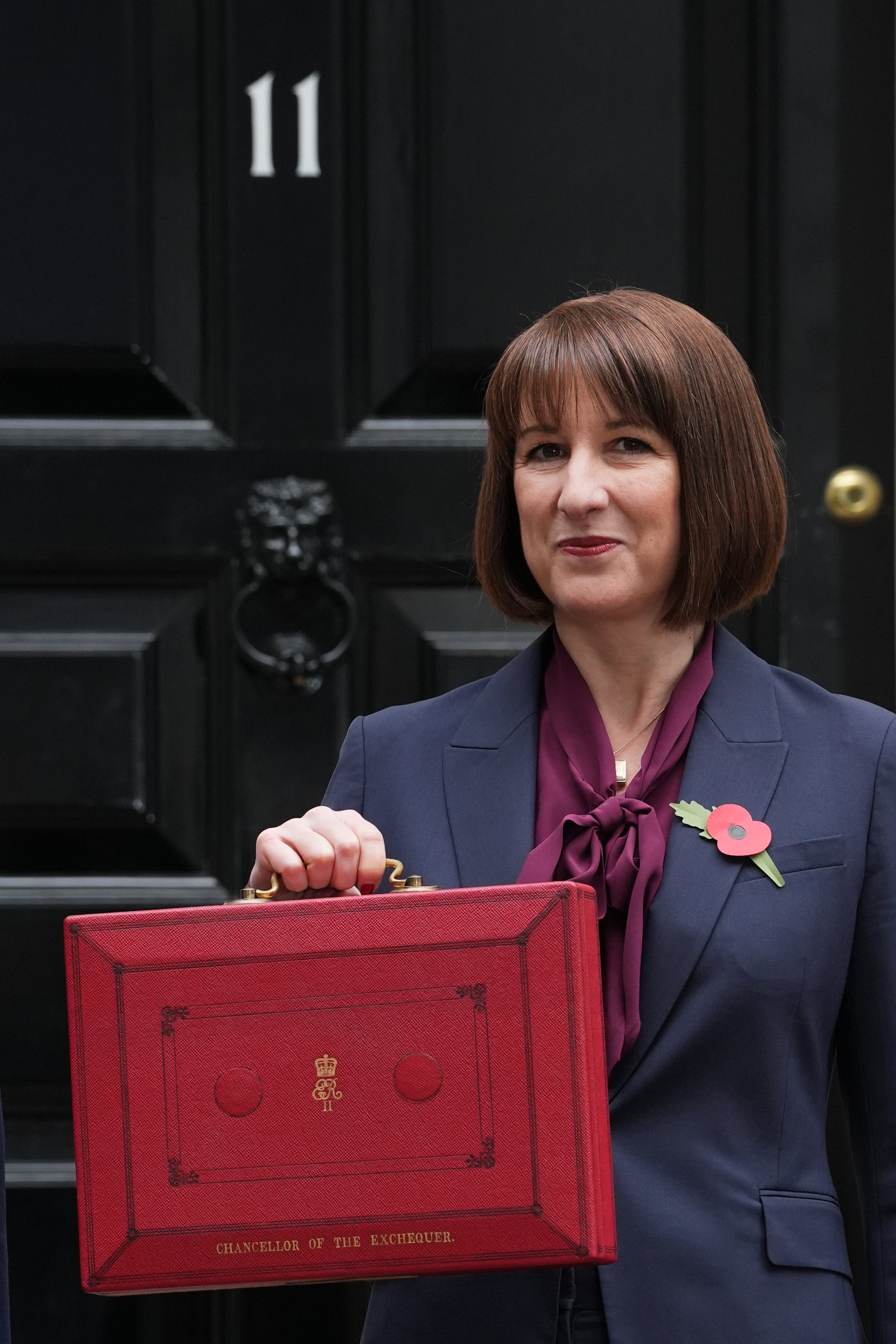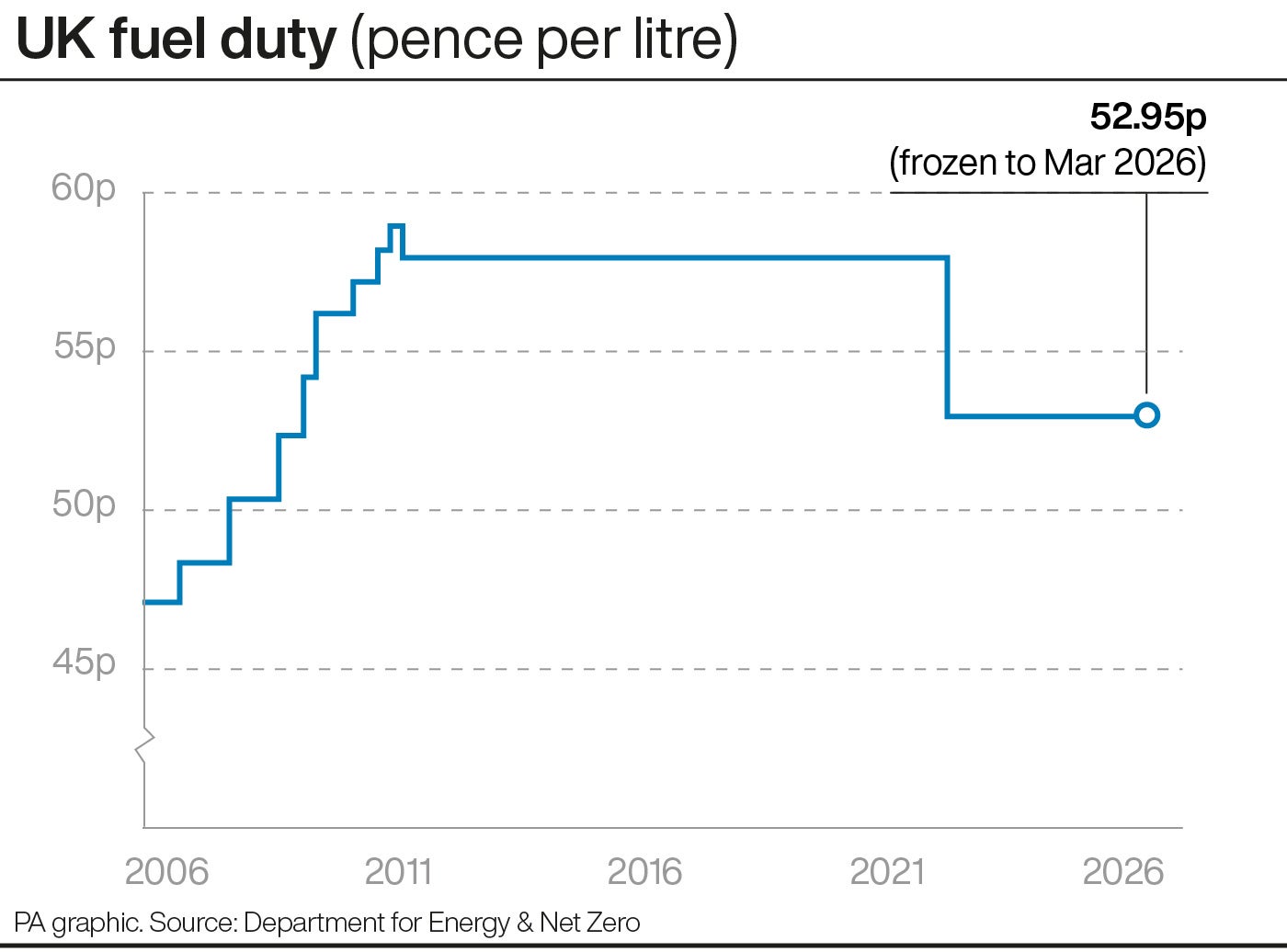Fuel duty: How will Rachel Reeves’s freeze on motorist tax affect you?
Rachel Reeves announces fuel duty freeze as motorists spared from Budget tax rises

Your support helps us to tell the story
From reproductive rights to climate change to Big Tech, The Independent is on the ground when the story is developing. Whether it's investigating the financials of Elon Musk's pro-Trump PAC or producing our latest documentary, 'The A Word', which shines a light on the American women fighting for reproductive rights, we know how important it is to parse out the facts from the messaging.
At such a critical moment in US history, we need reporters on the ground. Your donation allows us to keep sending journalists to speak to both sides of the story.
The Independent is trusted by Americans across the entire political spectrum. And unlike many other quality news outlets, we choose not to lock Americans out of our reporting and analysis with paywalls. We believe quality journalism should be available to everyone, paid for by those who can afford it.
Your support makes all the difference.Rachel Reeves said it would be the “wrong choice” to increase fuel duty next year, saying she would continue the freeze and maintain the temporary 5p cut for another year.
She told MPs during The Budget she has to “take some very difficult decisions” on tax, and noted to retain the 5p cut and freeze fuel duty again would cost more than £3 billion next year.
This means the 5p per litre cut in fuel duty introduced by the Conservative government in March 2022 will continue.
Until the 5p cut, fuel duty had been frozen at 57.95p per litre since March 2011.
VAT is charged at 20% on top of the total price of fuel.
Ms Reeves said: “To retain the 5p cut and to freeze fuel duty again would cost over £3 billion next year.
“At a time when the fiscal position is so difficult, I have to be frank with the House that this is a substantial commitment to make.
“I have concluded that in these difficult circumstances – while the cost of living remains high and with a backdrop of global uncertainty – increasing fuel duty next year would be the wrong choice for working people.
“It would mean fuel duty rising by 7p per litre. So, I have today decided to freeze fuel duty next year and I will maintain the existing 5p cut for another year, too.
“There will be no higher taxes at the petrol pumps next year.”

But how does it work?
Government figures show the average cost of a litre of petrol and diesel at UK forecourts is around £1.34 and £1.40 respectively.
Prices reached record highs of £1.92 for petrol and £1.99 for diesel in July 2022, largely due to Russia’s invasion of Ukraine leading to an increase in the cost of oil.
AA president Edmund King said: “In this eve-of-Halloween Budget, the Chancellor has conjured up a treat for drivers.
“Since Covid and the start of the Ukraine war, perma-high pump prices have inflicted road fuel costs that were well above anything motorists had endured before.”

RAC head of policy Simon Williams said: “It’s good to see the Government firmly recognising the importance of the car to millions of households up and down the country.
“Eight in 10 drivers tell us they are dependent on their vehicles for the journeys they need to make.”
Analysis by motoring research charity the RAC Foundation shows tax makes up around 55% of pump prices.
Director Steve Gooding said: “Tens of millions of drivers will be breathing sighs of relief.
“We shouldn’t feel too sorry for the Chancellor. She still gets well over half of everything paid at the pumps in a combination of fuel duty and VAT.”
But Hirra Khan Adeogun, co-director of climate charity Possible, claimed freezing fuel duty is “completely the wrong thing to do”.
She said: “Fuel duty will now be frozen for 15 years, while the cost of public transport has gone up and up each and every year.
“This is completely the wrong way around, and we need to move to a system which makes the greenest ways of getting around the cheapest and most convenient.”
Join our commenting forum
Join thought-provoking conversations, follow other Independent readers and see their replies
Comments